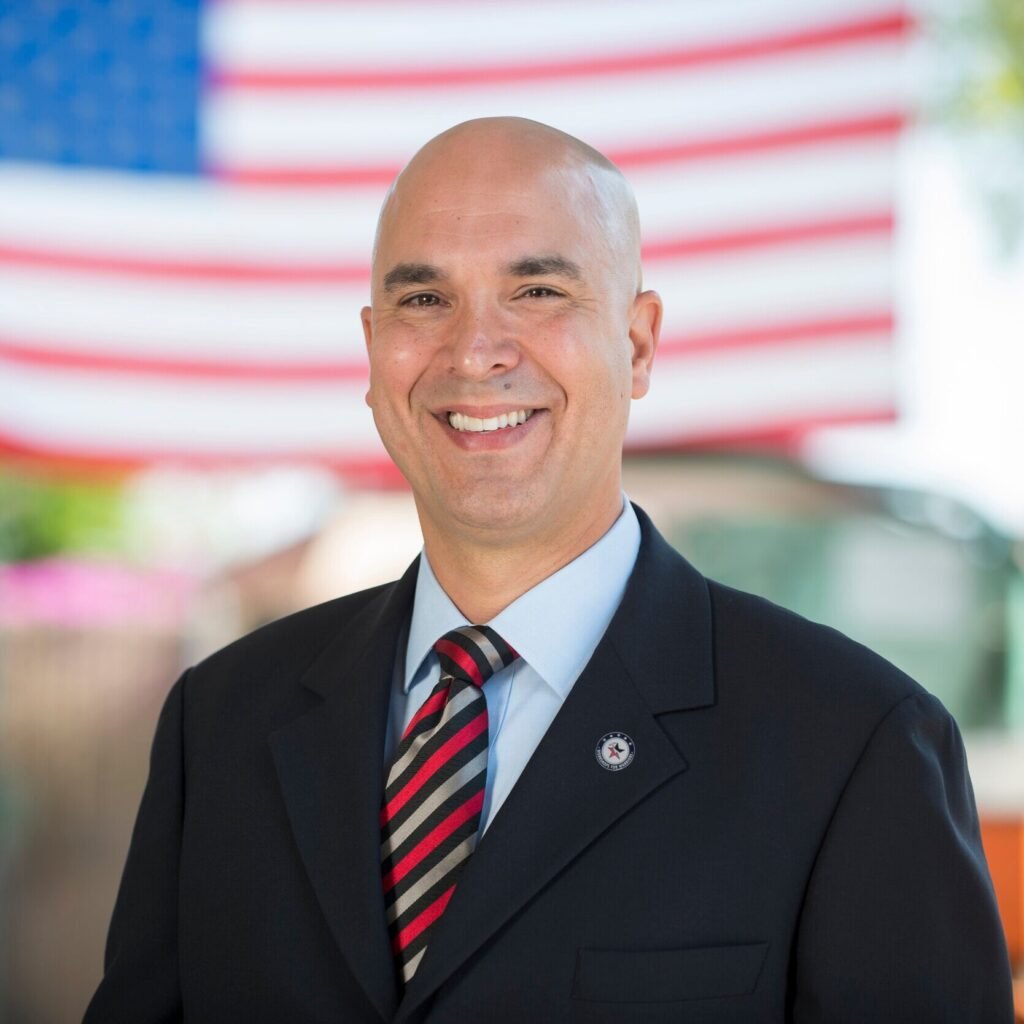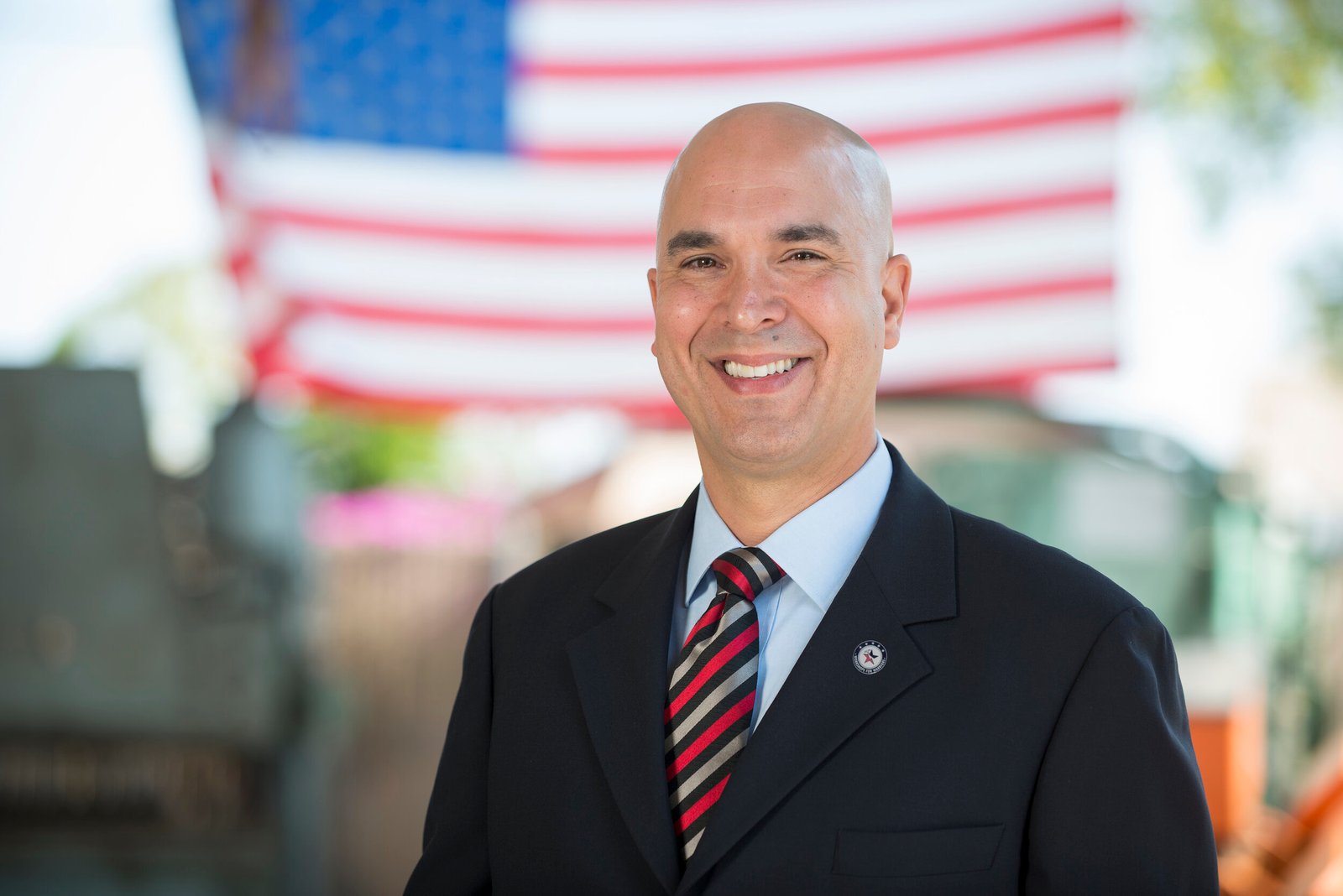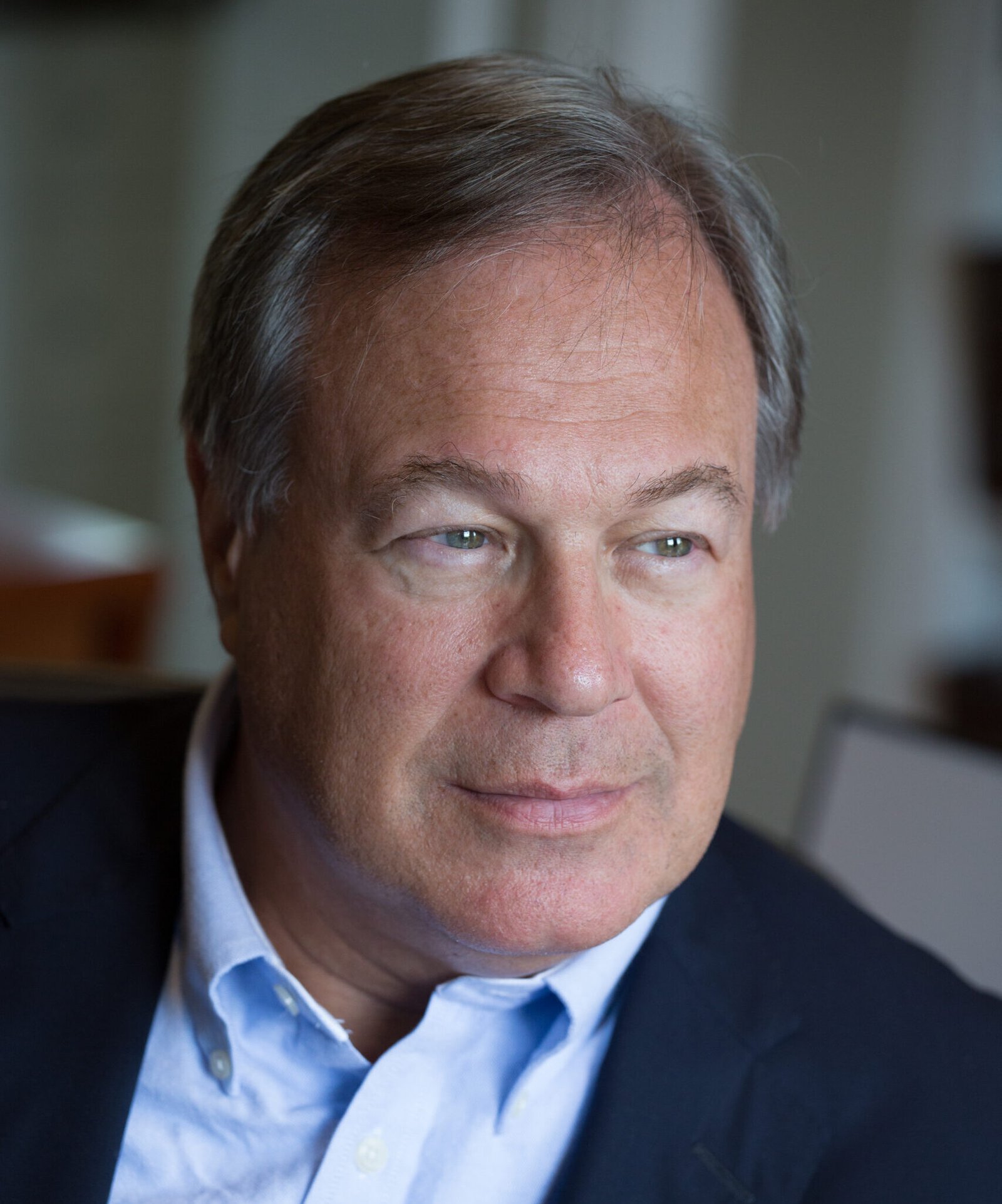I recently went one on one with Hernán Luis y Prado. Hernán is the founder and CEO of Workshops for Warriors (WFW), a non-profit organization that provides transitioning service members and veterans compressed advanced manufacturing training, certification, and job placements at top manufacturing companies across the country. Hernán served in the United States Navy for 15 years as a Hospital Corpsman and then as a Surface Warfare Officer, serving three combat tours of duty In Iraq and Afghanistan. Hernán was recognized by the Obama White House as a “Champion of Change” for WFW’s extensive efforts and notable achievements in helping veterans successfully transition from the military into advanced manufacturing careers. Since inception, Hernán and WFW have graduated roughly 800 veterans and continue to work to actively combat the shortage of skilled workers in the advanced manufacturing industry.
Adam: Thanks again for taking the time to share your advice. First things first, though, I am sure readers would love to learn more about you. How did you get here? What experiences, failures, setbacks or challenges have been most instrumental to your growth?
Hernán: I grew up all over the world (Argentina, Washington D.C., Barcelona, and France). While I was finishing my university studies in Paris, I realized how complacent people had become and how removed most educated, polite, and civilized people were from the horrors that were happening across the globe.
I decided to enlist in the U.S. Navy because I wanted to be part of a military organization that:
-
Supported and defended freedom for all as an ideal cemented in the U.S. Constitution.
-
Helped others in their time of need (American humanitarian aid missions are renowned throughout the world).
-
Had a mechanism for redress.
-
Is a true meritocracy.
The U.S. Military taught me so many things that have helped me grow as an individual, as a patriot, and as a citizen of the world. Fighting for what you believe is noble, but living to help others is an equally difficult, and equally satisfying, mission. I am proud of my Nation when she does not hesitate to defend the weak and vulnerable, and prouder still when she selflessly helps and supports others.
What experiences have been most instrumental to my growth:
I remember coming back from Iraq and seeing my injured friends in the hospital and knowing that they would never again be the vibrant happy go lucky men they were before.
I saw firsthand how so many people vocalized that something needed to be done for our Nation’s veterans, and yet no-one was really doing anything. I refused to accept the status quo and founded Workshops for Warriors as an instrument to provide real, concrete assistance to our wounded warriors, transitioning service members, and veterans.
The biggest challenge that comes to mind was the first five years at Workshops for Warriors when there were several times that we were a week away from insolvency. Not only was the organization on the brink, but so were my family’s own finances with two young babies at home. Simultaneously, friends I served with in Iraq were suffering across the country with nowhere to go, no work to pursue and no one to ask for help.
Despite these extremely bleak times, I saw firsthand how important luck is and saw that luck tends to come to those who are relentless.
Luck connected me to a fellow Veteran (Dave Phelps) who gave us some scrap metal to sell so that we could make it another two weeks. Then there was another patriot that spent years helping to set up our schools for free (Robbie Nordstrom), and other vets (Amanda Brooks, Brian Brennan, Scott Dion) who loaned us money and worked for free for years so that we could help our fellow vets. Luck connected me to my best friend (Ethan Weinstein) who helped define what the organization should look like and provided thousands of hours of legal advice.
However, my biggest stroke of luck was finding an amazing woman (Rachel) who would later on become my wife. She has had to endure and sacrifice more than anyone else, a responsibility that was not hers to bear, and she has done so admirably, with love, intelligence, and kindness. She has been the most steadfast friend, supporter, and partner I could have ever imagined.
That is truly luck.
During these tough periods I learned to:
-
Never, ever, ever give up. Be relentless.
-
Never lose hope.
-
Ask for help.
-
Pray for luck.
Adam: What are the best leadership lessons you have learned from your time in the Navy?
Hernán: If you take care of your people, they will take care of you. Leaders eat last, and trust and loyalty flow both ways. As a Corpsman in the Navy serving with Marines in combat, my Marines trusted that I would be there if they needed me and I trusted them with my life, as well.
I also learned to lead by example. If I ask one of my sailors to do something difficult in harsh conditions, they have to know and trust that I would be willing to do the same under equally tough conditions – and if I were not right beside them it was because I was doing something else, equally as important, on their behalf.
This manifested through telling my sailors the “why” behind what I asked of them. When a person knows the purpose of an individual task or action, and how it contributes to broader objectives or goals, they are more likely to execute the task with zeal. Consequently, should things not go according to plan they are able to use their initiative to accomplish what needs to be done to reach the intended organizational end state.
Lastly, I’ve learned you get what you earn. Work ethic matters and I would rather work with someone who has an outstanding work ethic and who is not as effective of a worker than someone who is extremely effective but lacks motivation or desire. Taking shortcuts will always catch up with you over time. There is no good substitute for hard work, be it mental or physical.
That said, you can’t overwork your team. Work/life balance is a real thing. At any point in time you might be required to give 90% to your work and only 10% to your family or personal life. But that ratio has to be turned around at some point, for an equivalent amount of time, to regain balance.
Adam: What are the best leadership lessons you have learned from leading a non-profit organization? What are your best tips for fellow leaders of non-profit organizations?
Hernán: The leadership lessons I learned while in the Navy have been reinforced while leading a non-profit organization. While the corporate or non-profit setting might not present a combat environment, the principle of trust leadership applies equally as well.
At Workshops for Warriors, we’re training hundreds of veteran in new careers in the advanced manufacturing space, such as robotics, machining, 3D printing, computer-aided design and more. Many of the veterans entering the program have little –or more likely, no– experience in these professions, and at first that can be intimidating. But when people know they have your trust, they feel empowered to demonstrate greater initiative and display a far greater sense of ownership over their department or processes that they influence, or in this case training. They care more about what they are doing because they know they directly impact the outcomes of the organization through their unencumbered efforts.
A leader earns the trust of his/her employees when they know they are trusted, and that leader has proven to make sound decisions and take actions that benefit both the desired end states of the organization, employees, and in our case, students.
For recommending best practices to other non-profit professionals, I would say have vision, articulate it clearly and often to your people. Work hard, ensure your employees understand how their actions contribute to your organization’s purpose, and never lose sight of why you started your non-profit.
It’s easy to get caught up in the technical or managerial process of running the non-profit, ensuring growth for the sake of growth, or making it operate more efficiently at the expense of its intended social benefit. Whether your purpose is saving whales, promoting the arts, or supporting transitioning service members and veterans, ensure that everything you do feeds the successful accomplishment of that mission. Don’t get distracted by shiny objects that don’t bring value to your purpose, no matter how appealing they may seem.
Adam: In your experience, what are the defining qualities of an effective leader?
Hernán: Humility, selflessness, a drive toward continuous self and organizational improvement, and the true desire to set conditions for those you lead to succeed in their endeavors, both work-related and personal.
Effective leaders set their people up to succeed, whether that be through positive reinforcement or placing individuals in environments that provide them the opportunity to hone their skills, demonstrate their capabilities or learn something new. Effective leaders are also hyper-aware of how their actions bleed into the people and teams they lead; everything from the way they react to a situation, the emotions they display, their point of view on a topic or issue and more, all of it sets the team’s tone and that tone can push everyone toward success or the other way around.
I see this every day at Workshops for Warriors. Given we train veterans, they’re all natural leaders and are constantly pushing one another to strive higher and set one another up to succeed. They understand the way they react to the rigors of training can affect the teams around them and it forms a net of sorts that bind the students together in one fighting force.
Adam: How can leaders and aspiring leaders take their leadership skills to the next level?
Hernán: Learn from other great leaders and from negative leadership examples. Read about, study and observe other leaders. Emulation is the sincerest form of flattery; if you see something that works, that you admire in a leader, do it. There is no shame in imitating effective strategies that you find useful to your situation; most things do not require the re-creation of the wheel.
That said, ensure you do it in a way that is in character with who you are and the situation at hand. Learn from others, but be yourself. Many problems, solutions, conflicts or otherwise read from the same script but with different actors. The situation you face may be similar in nature to what leaders you emulate may have faced, but the people involved are different. Effective leaders recognize and compensate for these differences while maintaining awareness and inspiration from positive leadership examples they’ve studied or experienced.
Just as they were taught during their service in the military to emulate effective military leaders, we teach our veteran students to emulate the skills needed to succeed at major American manufacturing companies, from Tesla to Boeing.
As for negative leadership examples, learn from those as well. Know what behaviors are counterproductive and should be avoided in professional and personal endeavors. Too often, we focus only on the home runs but you can learn just as much from the strikeouts, whether they be your own or from someone else.
Adam: What are your three best tips applicable to entrepreneurs, executives and civic leaders?
Hernán:
-
Surround yourself with good people, then trust them to execute your vision. You need to focus on the big picture. Don’t get mired in detail that can derail progress. Guide the process, don’t let the process overly constrict your actions. Look for opportunity in any situation.
-
You get the hand you are dealt, but you don’t have to live with it.
-
Think creatively, act decisively, and modify direction as necessary to reach success.
Adam: What is your best advice on building, leading and managing teams?
Hernán: Pick the right people, trust them and focus on setting conditions for them to succeed.
It’s crucial to select the folks that best support your organization’s key objectives, lead them by example and provide them opportunities to succeed in their endeavors and continue to expand their knowledge and capabilities.
You also need to find the people who want to be there. The veterans training at Workshops for Warriors want to begin a new career, just like effective leaders in organizations want to drive change or create impact. Surrounding yourself with the right people who share the organization’s vision is critical.
Adam: What is the single best piece of advice you have ever received?
Hernán: Never give up. When things seem darkest, keep pushing. There really are times, through effort, in which you can snag victory from the jaws of defeat. Those moments will help define you as a leader. Many veterans have come to our program in deep despair with few options, and now they’re working in new careers across the country. It’s times like those where, more than anything, you need to keep pushing, and pushing, and pushing forward.
Adam: What should everyone do to pay it forward?
Hernán: Understand that in life you are not on an island. Your life has been impacted by thousands of interactions and influences that came together, and combined with your personal effort, produced success.
Pay forward the successes you’ve obtained in life by being a positive influencer for someone else. Help create opportunities for others; participate, donate, speak up for the things that not only matter to you but the things that matter to others. It might sound trite, but I’ve found that the golden rule is a rule to follow; treat other people the way you want to be treated.
Adam: Is there anything else you would like to share?
Hernán: Karma is no joke. It might take a while, but good things happen to good people. And the reverse is true as well because like I said earlier, shortcuts catch up with you.









